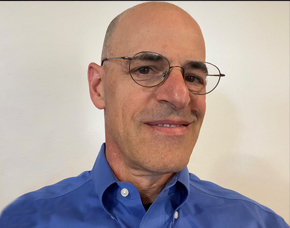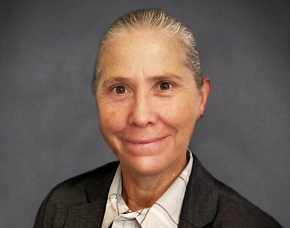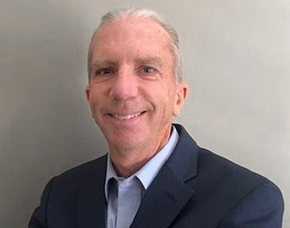June 4th¬ to June 8th was the 2021 ASCO Annual Meeting. The theme for this year’s meeting was “Equality: Every Patient. Every Day. Everywhere.” In addition to speaking on advances in cancer research, presenters spoke on the disparities and boundaries in cancer care. Of the theme Dr. Lori J. Pierce said, “…the COVID-19 pandemic has re-illuminated pervasive and unjust health inequities that exist all over the globe….we have a responsibility to meet [barriers to care] head on” 1. Taproot Health—a company founded by oncologists—recognizes these issues and the role we must play.
Taproot Health has previously written about disparities in clinical trials. These clinical trials are the primary tool used to learn about cancer; but less than 5% of cancer patients are enrolled, and these numbers are significantly smaller for people of color, patients in rural areas, and patients of a lower socioeconomic status 2,3,4. Organizational barriers further hinder trial participation. Many clinics do not have the resources to conduct trials.
Another major barrier to high-quality care amongst people of color, patients in rural areas, and patients of a lower socioeconomic status is lack of genomic testing. For those who may be unfamiliar, the National Institute of Health defines genomic testing as “genes, proteins, and other substances” 5. Genomic testing is important because it can identify specific treatments that are effective in treating certain biomarkers identified in testing 5. Several studies presented in the 2021 ASCO Annual Meeting emphasized the lack of access to this testing that exists today amongst aforementioned underserved groups.
So, what role can Taproot Health play in removing barriers to clinical trial participation and genomic testing?
To give underserved populations the opportunity to participate in clinical trials, Taproot Health created an accessible cancer study called ROOT. Taproot Health’s ROOT study has only three qualifiers for trial participation: (1) the patient must be 18 years or older; (2) the patient must be diagnosed with advanced cancer; and (3) the patient must give their consent to participate in the ROOT study. In addition to these requirements, molecular testing is strongly encouraged for every participant. By casting a wide net, data can be collected from a diverse group of cancer patients including those in traditionally underserved populations. Additionally, the study can be conducted anywhere in the United States—even in small clinics with limited resources. This removes the geographic hindrances that bar many, especially those in rural areas, from participation.
In addition to collecting data from populations with limited research, the ROOT study is fighting to improve quality of care by working with clinics to make genomic testing standard for any patient with advanced cancer. A major contributor to the lack of genomic testing in underserved populations is simply that the provider is not ordering the test 6. This is especially an issue in smaller community clinics 6. This problem can be decreased by encouraging clinics to develop an all hands on deck approach to molecular testing, enlisting medical assistants, nurses, mid-levels and even clerical individual to ensure that every patient is receiving genomic testing.
Conclusion
Taproot Health recognizes the barriers that exist in equal quality of care. We are excited about the role that we can play in improving the care of advanced cancer patients all over the nation, and we are excited that so many other organizations are working to create equality in cancer care.
To learn more about Taproot Health and the ROOT study, visit our website: www.taprootco.com or contact us at info@taprootco.com
References
- Farrell M. 2021 ASCO Annual Meeting Preview: Connect with One of the Largest, Most Diverse Audiences in Oncology. ASCO Connection. https://connection.asco.org/magazine/features/2021-asco-annual-meeting-preview-connect-one-largest-most-diverse-audiences. Published May 5, 2021. Accessed June 18, 2021.
- Chino, F., & Zafar, S. Y. (2019). Financial Toxicity and Equitable Access to Clinical Trials. American Society of Clinical Oncology Educational Book, 39, 11–18. https://doi.org/10.1200/edbk_100019
- Galsky, M. D., Stensland, K. D., McBride, R. B., Latif, A., Moshier, E., Oh, W. K., & Wisnivesky, J. (2015). Geographic Accessibility to Clinical Trials for Advanced Cancer in the United States. JAMA Internal Medicine, 175(2), 293. https://doi.org/10.1001/jamainternmed.2014.6300
- Chen, C., & Wong, R. (2018, September 19). Black Patients Miss Out on Promising Cancer Drugs. ProPublica.
https://www.propublica.org/article/black-patients-miss-out-on-promising-cancer-drugs - Biomarker Testing for Cancer Treatment. Cancer.gov. https://www.cancer.gov/about-cancer/treatment/types/biomarker-testing-cancer-treatment. Accessed June 18, 2021.
- Goodman A. More Widespread Biomarker Testing for NSCLC in Oncology Practices and More Testing in Black Patients: An Urgent Priority. The ASCO Post. https://ascopost.com/news/june-2021/more-widespread-biomarker-testing-for-nsclc-in-oncology-practices-and-more-testing-in-black-patients/?utm_source=TAP%2DEN%2D060821&utm_medium=email&utm_term=f9b625d29cd1aa7451d9855f98c538ba. Published June 8, 2021. Accessed June 18, 2021.








